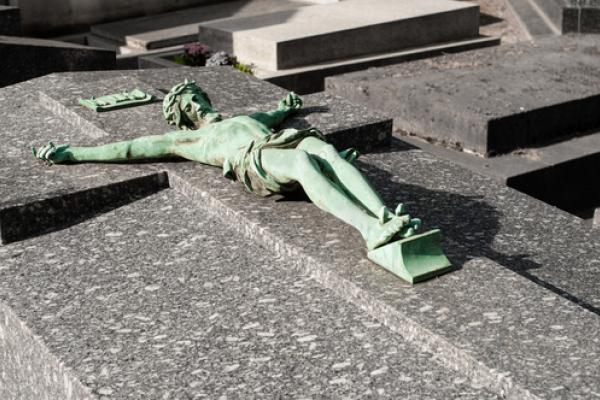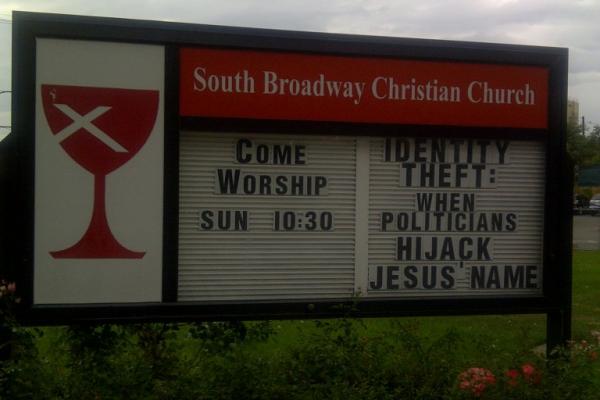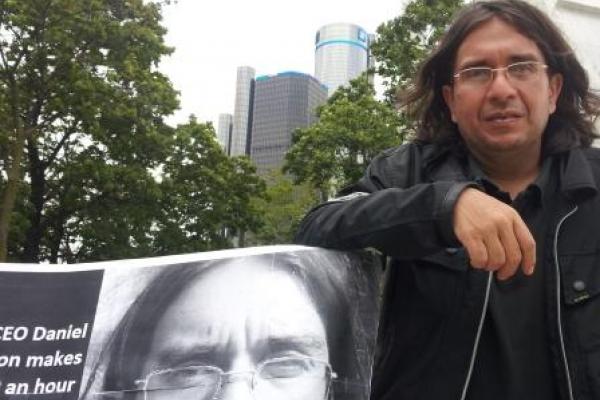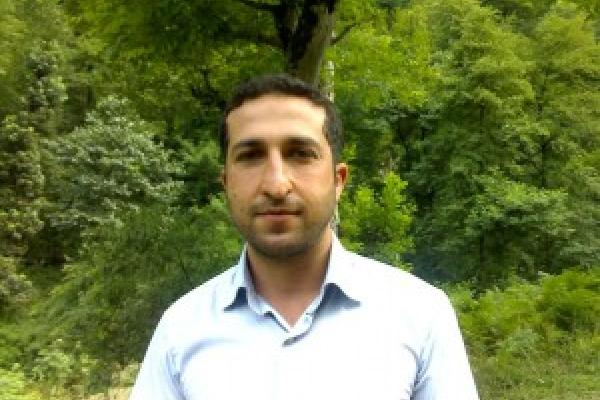Why did Jesus have to die? Was it to appease a wrathful God's demand for punishment? Does that mean Jesus died to save us from God? How could someone ever truly love or trust a God like that? How can that ever be called "Good News?"
It's questions like these that make so many people want to have nothing to do with Christianity.
Countless people filling our pews have adopted this hurtful view of God and themselves. It has led many to internalize feelings of shame and self-loathing, thinking this is what God desires. Others have lost their faith entirely because of it, unable to worship a God who seems to them to be a moral monster. Faith motivated by fear, threat, and feelings of worthlessness. How could things have gone so wrong?
When did the good news become bad news?
Emmanuel Jal—South Sudanese pop musician, rapper, and peace activist—was beaten and robbed this past weekend by Police in Juba, South Sudan (Rolling Stone). Jal, a former child soldier, was in his homeland promoting an upcoming concert on International Peace Day in two weeks.
AllAfrica reports:
“At approximately 9:30pm, Emmanuel was en route to the Gatwich guesthouse in the outskirts of Juba when he was stopped by police and robbed of his mobile phone. Imminent not to use violence, he was repeatedly beaten by 5 police and national security officers until he eventually lost consciousness."
Gotta say I’m a big fan of this church sign at my father-in-law’s church.
It’s time to STOP:
- Using faith, Jesus, and the Bible as a political platform;
- Cherry-picking from the Gospel based on what polls well;
- Claiming Jesus would be so myopic to identify with either of our major political parties;
...
I try to teach in the present. With Billy, though, I found myself thinking about the future. Will middle school be a challenge for him? Will he be an outcast in high school? Or a target for bullies?
I wondered what contributions he might make to society as an adult. Would he start a revolution in the art world?
If his peers constantly slap their hands down and say there's no room for him, how will he react? Will he become a part of what author Alexandra Robbins calls the "cafeteria fringe,” those people who are not a part of the school's or society's in-crowd? Because he seems different, will he be labeled “geek,” “nerd” or “weirdo?”
As a teacher I want to help him overcome. But what can I do?
I worked as a welder at a Chevrolet assembly plant near Bogotá, for General Motors’ South American subsidiary Colmotores--until my back began to hurt. I underwent three surgeries and now walk with a cane and have several screws in my spine.
When I could no longer work due to my occupational injuries, GM fired me, paying me no medical benefits or severance.
... I believe God is a God of justice, that the poor will be filled and the rich will be sent away empty.
But our situation was the opposite. The rich sent us away empty.
According to a report late Friday from Christian Solidarity Worldwide, an international organization devoted to issues of religious freedom, Pastor Youcef Nadarkhani, a Muslim convert to Christianity who has been imprisoned by the Iranian government since 2009 on apostasy charges, has been acquitted and released from prison.
Nadarkhani, 35, previously had faced a possible death sentence for the charges against him, a result of his prostelytizing Muslims to convert to Christianity. He also refused to deny his Christian faith to save himself from execution.
Since his detainment three years ago, the U.S. State Department, the British government, the Vatican, Amnesty International, and a host of Christian organizations and leaders — including South Africa's Archbishop Desmond Tutu — have called on the Iranian government to release the young pastor.
With the Republican and Democratic National Conventions having taken place over the last two weeks, we can officially say that we’re entering the election season (i.e., that time when the general public begins to pay attention).
A couple of friends who pastor churches in non-D.C. parts of the country asked me if we feel the need to address politics at The District Church, being in the very belly of the beast (my words, not theirs). Specifically, they were asking: Given the intense polarization and often-unproductive arguing that we see around us, even in the church, about the need to address how we interact with those who disagree with us.
So far, we haven’t needed to. In our church community, we have Republicans, Democrats, Independents, and yes, even people who don’t care about politics; we have Hill staffers, White House staffers, activists, advocates, lobbyists, policy wonks, and more — and we’ve all come together as the body of Christ, recognizing that our allegiance is first to Jesus before any party or even country.
Even so, every four years (or every two, if you pay attention to mid-terms; or all the time, if you’re even more politically engaged), posts about politics pop up with increasing frequency on social media, eliciting often-furious back-and-forths that usually end up doing nothing more than reminding each side how right they are and how stupid the other side is.
So I figured I’d try to offer a few suggestions on how we can engage with one another on matters of politics in healthy ways.






